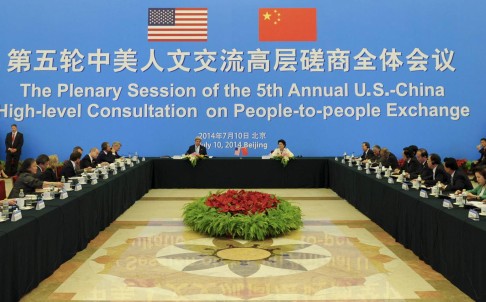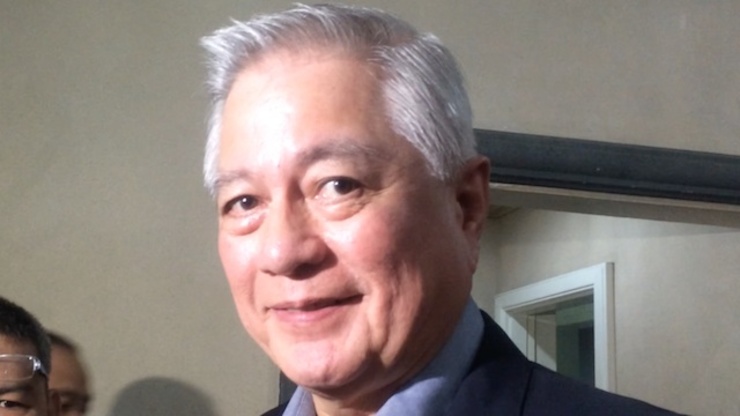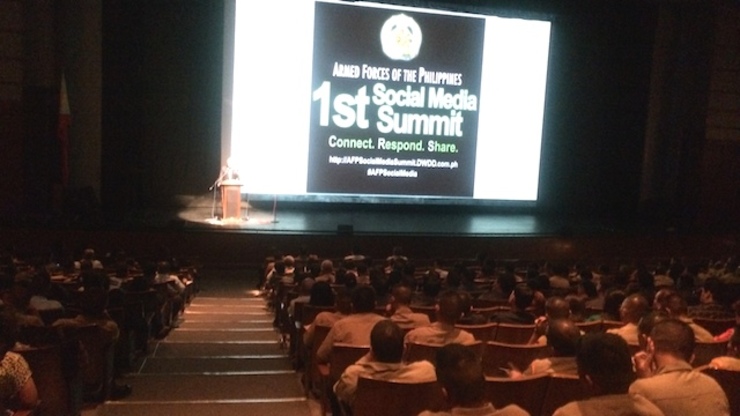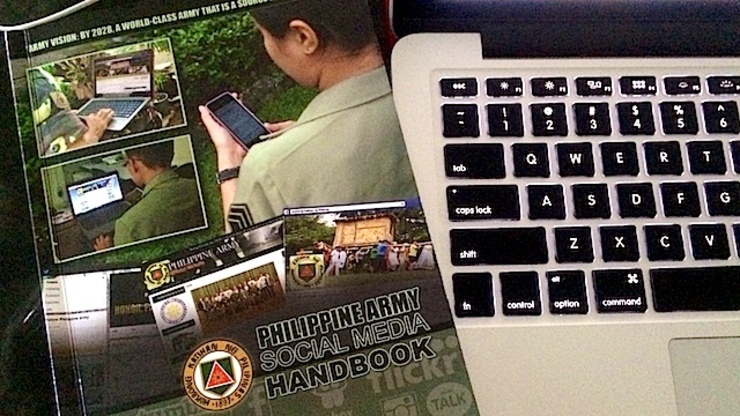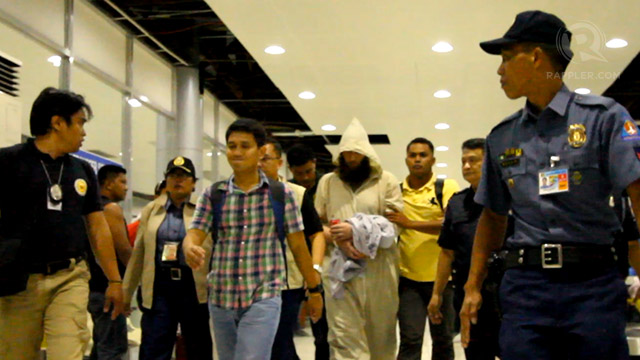From the Straits Times Asia Report (Jul 12): Washington pundits: 'Get tough with China'
Washington pundits frustrated with Beijing's actions in South China Sea call for show of force
WASHINGTON pundits are calling for tougher US action to counter Chinese aggression in the South China Sea, in a reflection of growing frustration after a high-level meeting in Beijing showed up the gulf in how both sides view the territorial disputes.
Speakers at a conference organised by the Centre for Strategic and International Studies here adopted a largely confrontational tone on Thursday, proposing that the United States conduct a calculated show of force and take measures to impose costs on China for any provocative acts.
Moves include increasing visible reconnaissance flights in the disputed areas, providing more equipment to allies, having military craft visit more ports in the region, and boosting the number of joint military exercises it conducts in the region.
The mood was set early on when the first speaker, Congressman Mike Rogers, described Chinese activities in the South China Sea as "gluttonous, naked aggression". He warned that a failure to act would bring "death by a thousand cuts".
"We need to be more direct; we need to be more aggressive. We need to empower our friends and our allies in the region to be more direct and more aggressive," he said.
The calls mirror a Financial Times report quoting unnamed administration officials as saying the Pentagon was contemplating new military tactics in the South China Sea. While this would not represent a drastic new direction - as Washington has been taking a firmer tone in recent months - it would put a dent in an already strained relationship.
At the end of the two-day Strategic and Economic Dialogue (SED) in Beijing on Thursday, China rebuffed calls from the US to adhere to international law in dealing with territorial disputes while asking the US not to take sides.
Mr Rogers, who chairs the House committee that oversees US intelligence operations, says the US has thus far been too deferential to Chinese sensitivities.
"From a diplomatic perspective, we have overlooked things in China we wouldn't have overlooked for any other country."
Dr Patrick Cronin, senior director of the Asia-Pacific Security Programme at the Centre for a New American Security, similarly advocated more muscular diplomacy, saying the US appears now to be more serious about "cost imposition strategies" - moves designed to dissuade China against its strategy of "tailored coercion".
China's actions, he said, have so far been designed to appear sufficiently non-military while signalling to neighbours that those seeking good trade ties need to give China more control over security and resource issues, and telling the US "its pre-eminence is unsustainable and it must do more to accommodate a rising China".
At the conference, Beijing also came under fire for its reluctance to submit any disputes to an international tribunal.
After a heated discussion in which legal experts from China, the Philippines and Vietnam laid out the positions of their respective countries, East Asian law specialist Jerome Cohen boiled down the arguments in this way: "Can one country say I am so right about my position that the Unclos (United Nations Convention on the Law of the Sea) tribunal has no jurisdiction, that I don't have to submit my argument to that tribunal at all?... Maybe those arguments will prevail, maybe the tribunal will say that China is right and we have no jurisdiction but China doesn't want to take a chance by doing what it is obligated to do."
But for all the criticisms of the Chinese and calls for a tougher US position, there was also significant doubt over whether the US can do more than just talk tough.
The limited options available to the White House were made especially clear during a simulation of the US response to a face-off between the Philippines and China in the disputed Spratly Islands.
In the imagined scenario, Chinese coast guard vessels formed a full air and naval blockade around the grounded Philippine vessel Sierra Madre in retaliation for the arrest of a dozen fishermen.
With academics playing the role of the US Secretary of State, Secretary of Defence and Secretary of National Intelligence, they debated for an hour over the options they would present to the President. There was care throughout not to do anything that China might deem aggressive. In the end, the proposed action was quiet diplomacy - telling Beijing behind closed doors that the US was prepared to use force to help its treaty ally resupply its vessel.
The outcome of the exercise dismayed some in the audience who felt that such a move would have little impact on the Chinese.
Said Dr Carlyle Thayer, an emeritus professor at the University of New South Wales: "Every time you see a joint statement from the SED in Beijing, both sides are emphasising military-to-military contacts and a new trajectory. I have a feeling the Chinese have hooked the US and the US is fearful of taking too strong a stand on the South China Sea."
http://www.straitstimes.com/the-big-story/asia-report/china/story/washington-pundits-get-tough-china-20140712
In the JICA’s website, it said that, “Under the program, groups of young leaders, who will eventually become nation-builders in the future, are invited to enhance their specialties by experiencing and learning technologies and skills in Japan for a period of 18 days.”
“JICA is implementing the program with the view of contributing to more sustainable capacity development for young leaders through greater emphasis on specialized technical training in various fields”, it furthered.
Ms. Marry Ann Bakisan, Senior Program Officer, JICA Philippines Office said “This year there are four courses available to young leaders who may want to apply.”
“These are Fishery Using Resource Management Approach Course, Rural Development Course, Small and Medium Enterprises Development and Promotion Course, and Economic Administration (Industrial Development and Promotion) Course,” she disclosed.
Ms. Bakisan, however, said that every year courses are changeable. “This year these are the courses, the following year there’s a possibility to introduce another courses to be offered,” she said.
“In every course there are JICA centres in Japan who handle the program,” Ms. Bakisan pointed out.
Among the courses strategies according to Ms. Bakisan are lecture type to be facilitated by JICA experts and its partner’s organization in Japan, interaction with Japanese youth, building networks, and actual exposure in the field by which it could have value added to the learning of participants.
“Part of the output of the program in each courses are the action plan or proposal made by the participants…either they can present it to their organizations for funding or to submit this to JICA for support,” she said.
The JICA has a program called ‘follow up cooperation scheme’ which provide funds for the proposal according to Ms. Bakisan.
“The JICA will assess it and if it’s found good proposal then there is a possibility that they will going to fund it,” Ms. Bakisan said.
The Training Program for Young Leaders or TPYL is a technical cooperation program aimed at promoting human resources development and nation-building in developing countries.
For more details of the said program, the applicants can visit the JICA’s website link at http://www.jica.go.jp/philippine/english/activities/activity02_03_02.html
http://www.luwaran.com/index.php/welcome/item/1086-jica-offers-training-program-for-young-leaders-in-the-philippines

